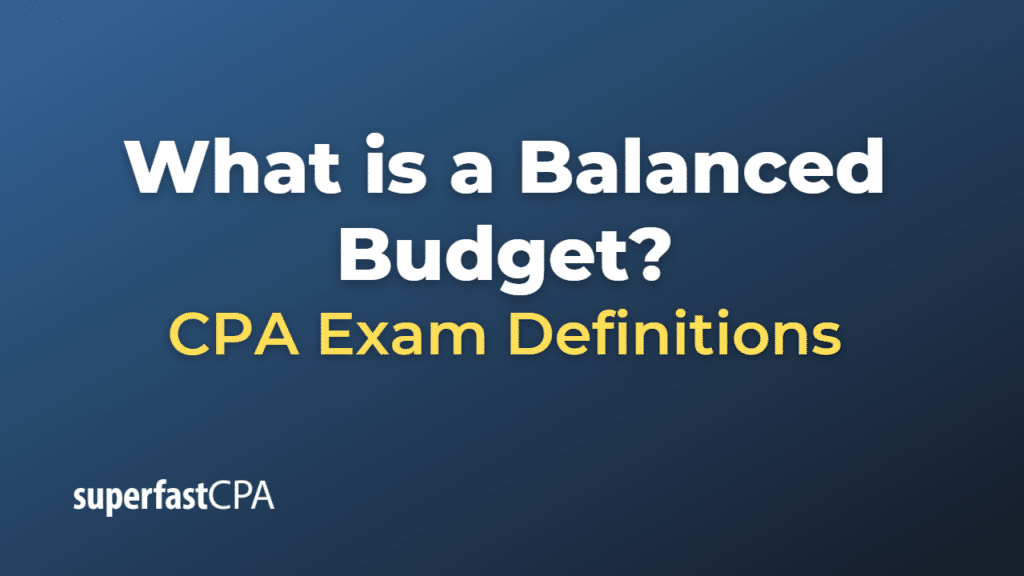Balanced Budget
A balanced budget is a financial plan in which revenues (income) are equal to expenditures (expenses) over a specific period of time. In other words, the income and expenses balance out, resulting in a net zero effect on the budget. This means that the entity, be it a government, business, or individual, does not incur a budget deficit or surplus during that period.
Governments often aim for balanced budgets to promote fiscal responsibility and maintain long-term financial stability. However, achieving a balanced budget can be challenging, especially during periods of economic downturn, when tax revenues decline, and governments may need to increase spending to stimulate the economy.
For businesses and individuals, maintaining a balanced budget can help avoid financial problems, such as excessive debt or bankruptcy, and promote long-term financial stability. It encourages responsible spending and ensures that all financial obligations are met without the need for borrowing.
Example of a Balanced Budget
Let’s consider an example of a balanced budget for an individual.
Imagine that Jane has a monthly income of $4,000. She wants to create a balanced budget, ensuring that her expenses do not exceed her income. To achieve this, she needs to allocate her monthly income to various expense categories, such as housing, utilities, groceries, transportation, insurance, and savings.
Here’s a breakdown of Jane’s monthly expenses:
- Housing (rent): $1,200
- Utilities (electricity, water, internet): $300
- Groceries: $400
- Transportation (car payment, gas, public transportation): $500
- Insurance (health, car): $350
- Savings: $500
- Entertainment: $200
- Miscellaneous (clothing, personal care, etc.): $550
When we add up all of Jane’s expenses, the total comes to $4,000. Since her expenses equal her income, Jane has successfully created a balanced budget. By adhering to this budget, Jane can ensure that she meets her financial obligations and saves for her future without incurring debt or spending more than she earns.













